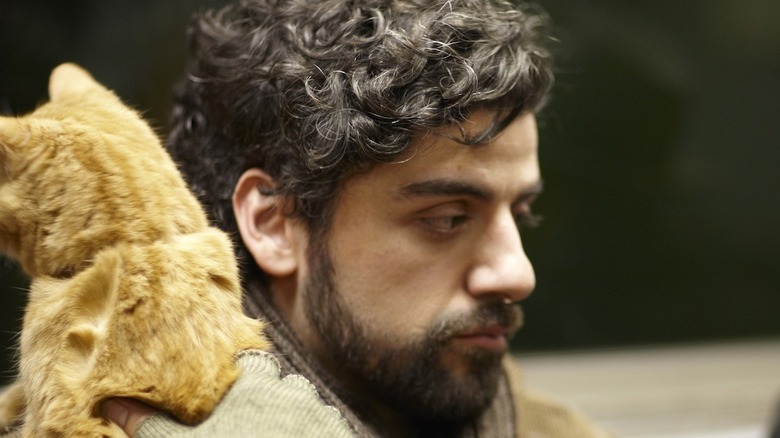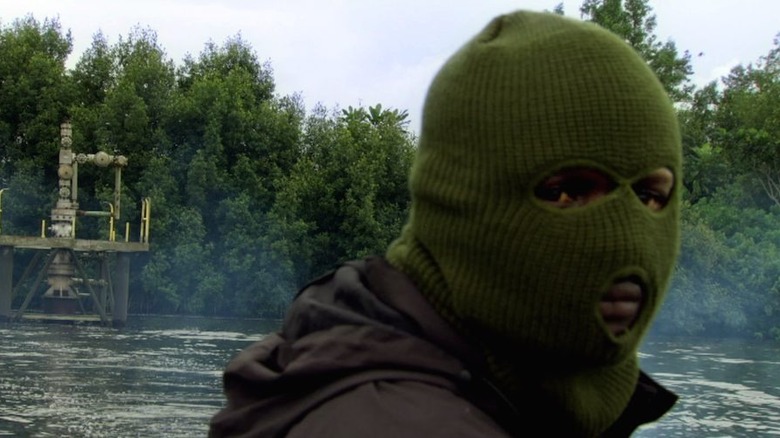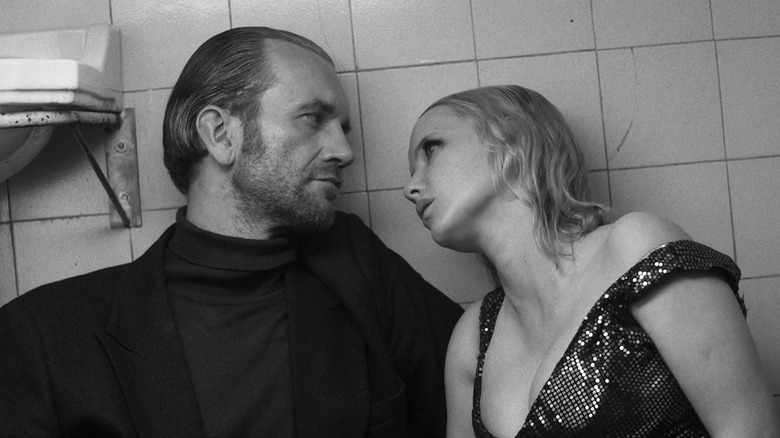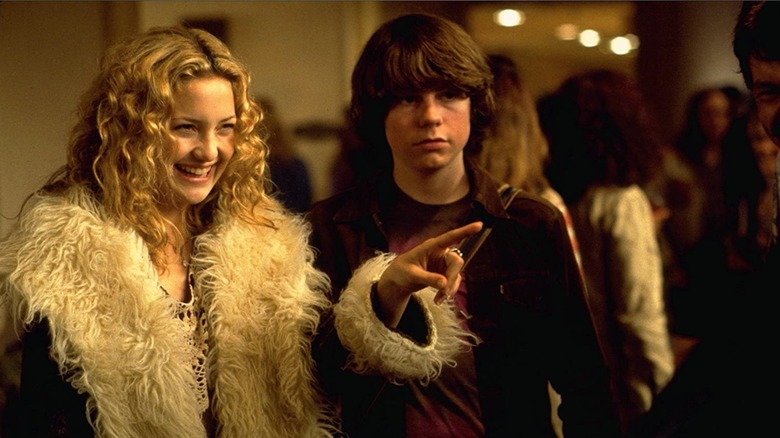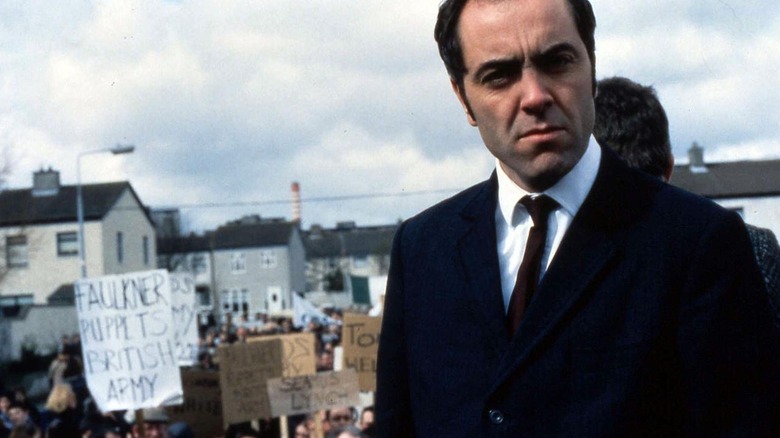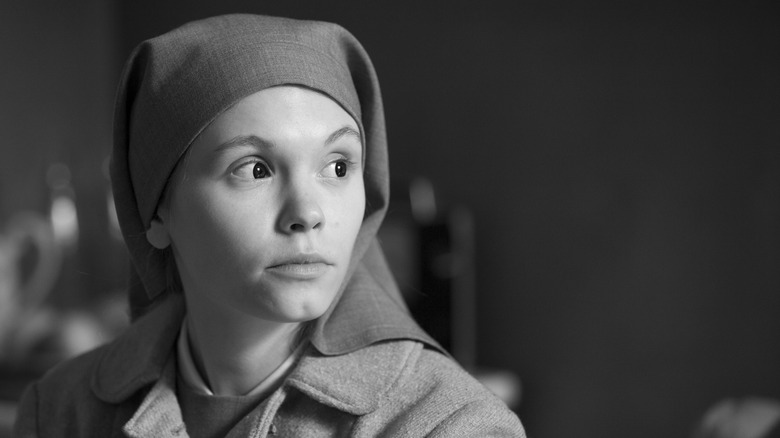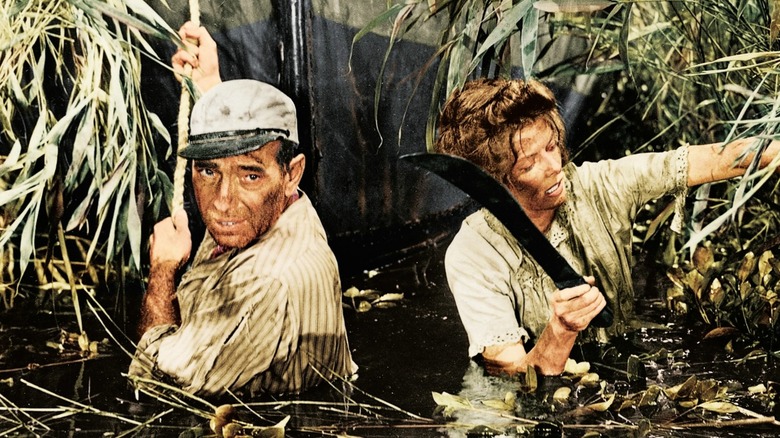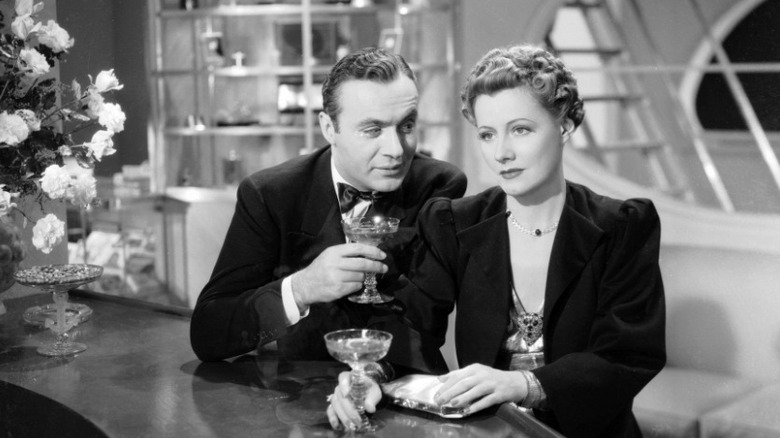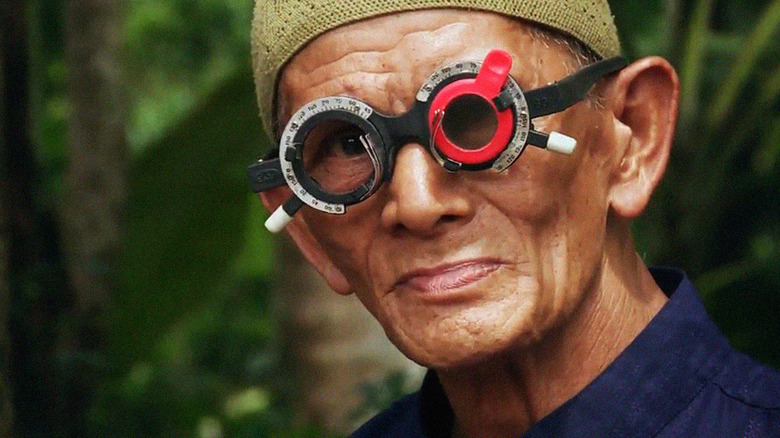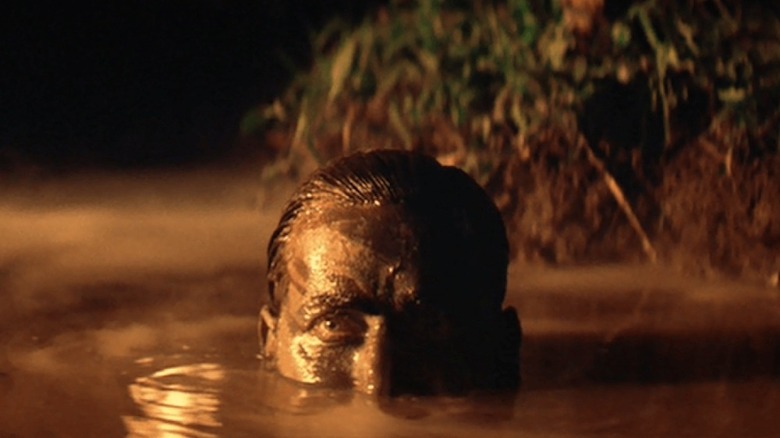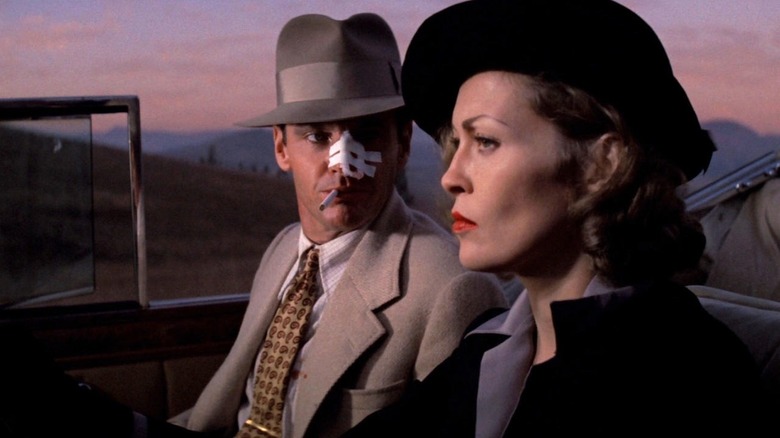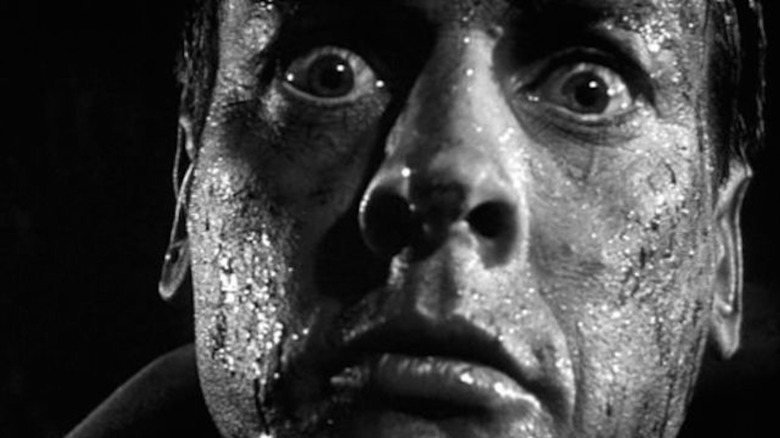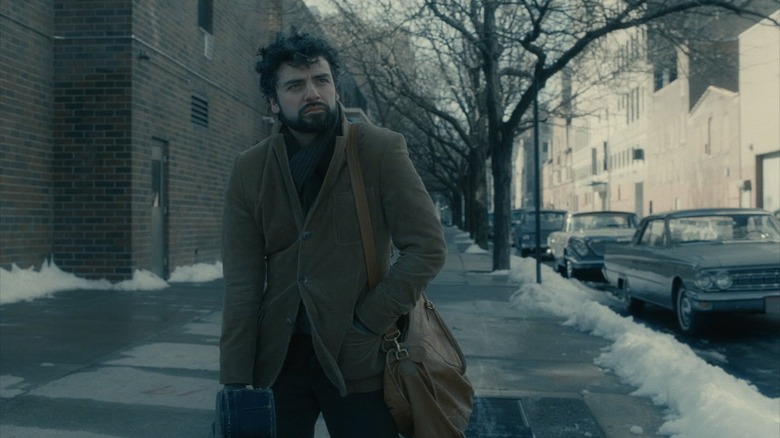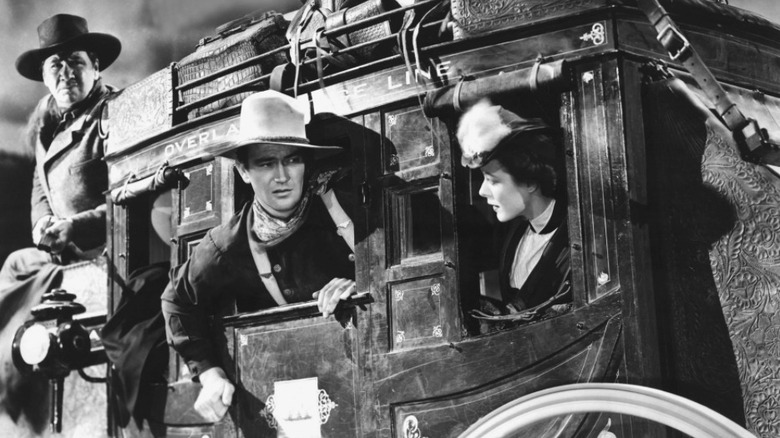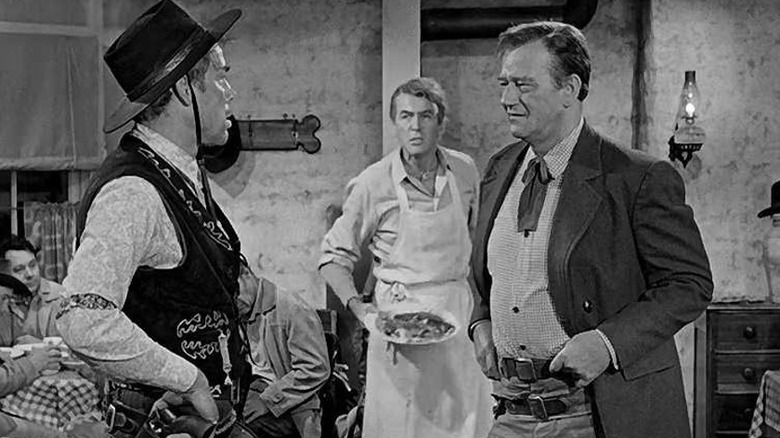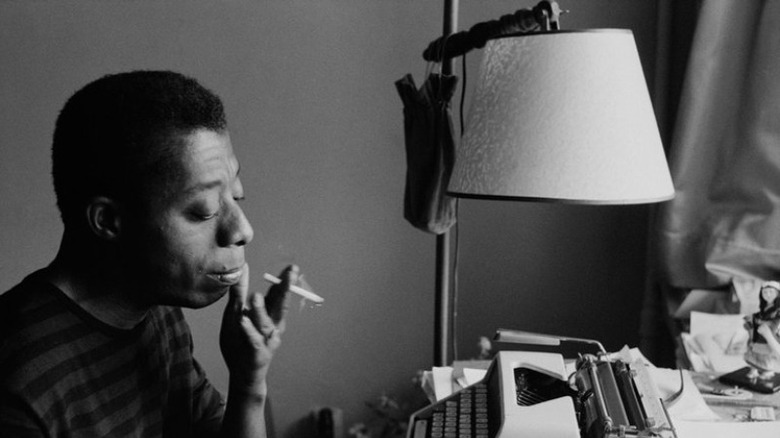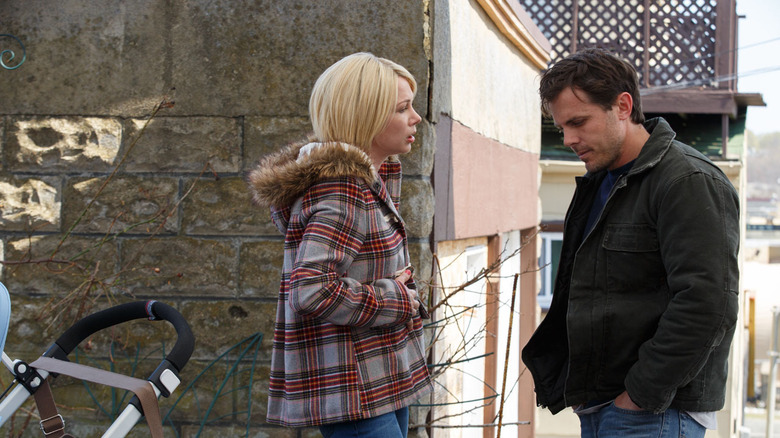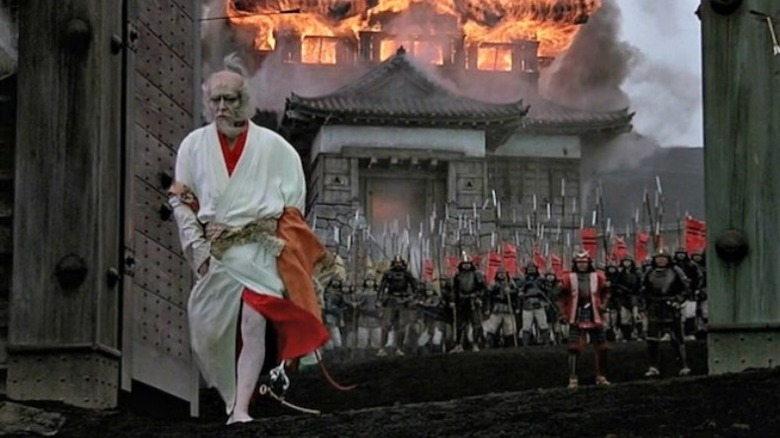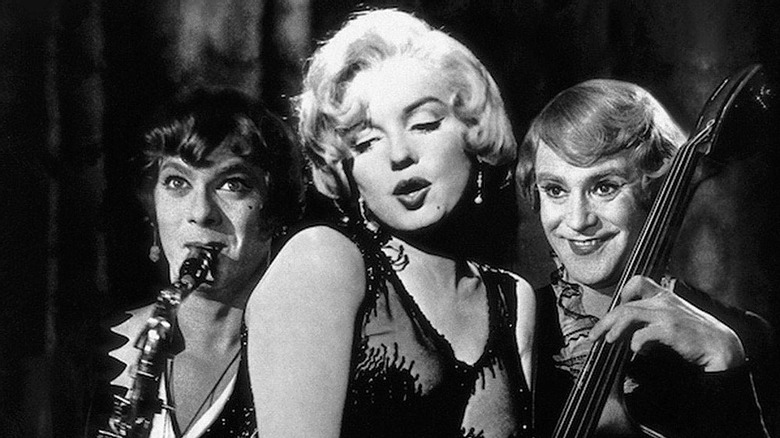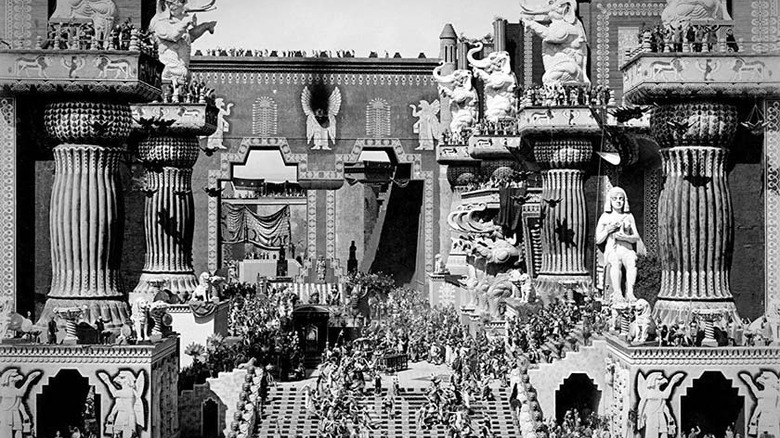Metacritic Says There Are 24 Near-Perfect Movies On Amazon Prime
No one is the final, objective arbiter of what is or is not a good movie. A film can fail at the box office, offend every reviewer who watches it, and earn enough universal disappointment to become the fodder for late night monologues and stand up comics. But if so much as a single person finds it worthy, entertaining, or perhaps even great, no academies or critics can take that away.
Still, some movies are so widely embraced by those who make it their literal livelihood to consume the things, it's difficult to imagine that there isn't something about them that transcends any bickering about their worth, allowing them to be regarded as, at the very least, near perfect.
It's possible that if there is a tool to find such films, Metacritic is a contender. The aggregate site uses critics' takes on films to let visitors know what the experts have to say, and you can also find out which of those films are available to stream if you subscribe to a particular service. If you're an Amazon Prime subscriber, here are the 24 near-perfect films Metacritic says you can enjoy right now.
Paterson
There is something particularly wonderful about a film that strives not to bring us to imaginary worlds, but that finds beauty in the one where we all work, pay bills, and hold unhatched dreams to our chest. Such a film is Jim Jarmusch's "Paterson," a name shared both by the film's setting — Paterson, New Jersey — and its lead character.
Adam Driver plays Paterson, a bus driver whose daily routine is as predictable as his bus route. He wakes up, drives the bus, and during breaks writes the poetry his wife Laura (Golshifteh Farahani) pushes him to publish. After work he walks his wife's British bulldog and has a single beer at a nearby bar.
"Paterson" isn't concerned with a twisting plot or earth-shattering revelations. It's almost more of a portrait than a story, giving us a heartfelt view of one man's life. Its genius is in its simplicity. It is, as Globe and Mail's Kate Taylor writes, "a cinematic ode to finding both art and delight in the quotidian."
Big Men
One of the most challenging aspects of documentary filmmaking is that real life is often much more complex than fiction. Rachel Boynton's skill at portraying the labyrinthine complexities of the African oil industry is an important part of what makes her documentary "Big Men" such an unquestionable triumph.
Filmed chiefly in Ghana and Nigeria between 2007 and 2011, "Big Men" chronicles the attempts of the Texas-based Kosmos Energy to capitalize on a newly discovered oil field off Ghana's coast. Boynton gets unprecedented access to many of the parties involved, including Kosmos, the politicians of the region, and the masked militants who want the oil for themselves. The documentary shows us the corruption hiding in all of their closets, whether they're wielding pens or automatic rifles. Without judgment, "Big Men" puts all the intricacies of global capitalism on display for its audience, forging a surprising and riveting story.
Cold War
Beautifully shot in black in white, the tragic romance "Cold War" has more blistering passion than the title might suggest. Set in a Poland trapped behind Stalin's Iron Curtain, "Cold War" is both a love story and a historical epic.
Following World War II, Wiktor (Tomasz Kot) and Zula (Joanna Kulig) share an immediate magnetic attraction when Zula auditions for Wiktor's state-sponsored folk music act. Life under the boot of Stalinism is no kinder to their love than it is to anything else, and over the years Wiktor and Zula are pulled apart only to keep finding themselves reunited. Their love and passion survive not only time and distance, but failed attempts to defect, addiction, and even prison.
The release of "Cold War" was met with near-universal acclaim, and deservedly so. Not only does it give audiences a wonderful and engrossing love story, but as Peter Rainer pointed out in the Christian Science Monitor, it offers a "depiction, insidious and unrelenting, of how artists under communism suffered for their art."
Almost Famous
When Cameron Crowe made his feature film directorial debut with 1989's "Say Anything...," he gave us one of the best and most iconic films of the '80s. He went on to make more acclaimed films, and one of the most beloved of them all is based on his own youth — the 2000 dramedy "Almost Famous."
Just like Crowe did, the young William Miller (played at different ages by Patrick Fugit and Michael Angarano) lands a dream job with Rolling Stone and his first assignment is to interview the band members of Stillwater — a fictional band meant to be a fusion of '70s groups like Led Zeppelin, the Eagles, and the Allman Brothers Band. Miller goes on tour with the group and gets to witness both the wonder and the ugliness of the '70s rock scene.
While some parts of "Almost Famous" are intentionally pure cheese, it succeeds by making it impossible to come away from the film without feeling light and filled with laughter. Not only is it a funny and affecting coming-of-age film, but it features a killer soundtrack that any follower of '70s rock will adore.
Bloody Sunday
"Bloody Sunday" is not an easy movie to watch. The film is a powerful portrayal of the 1972 shootings in Derry, Northern Ireland which left 13 unarmed protesters dead, and wounded 15 others — including one man who succumbed to his wounds months later.
We see most of the events leading up to the killings unfold through the eyes of Ivan Cooper (James Nesbitt), one of the march organizers. Rather than using a booming, dramatic soundtrack or stylizing it with gorgeous cinematography, director Paul Greengrass makes the bold choice of putting the viewer into the action. The entire movie is filmed with handheld cameras, making you feel as if you're witnessing the tragic events in real time. As Newsweek's David Ansen writes, "you have to remind yourself at moments that you're not looking at a documentary." The end result is a chilling and affecting story that leaves a dark impression long after viewing.
Ex Libris: The New York Public Library
You don't have to live anywhere near New York City to recognize the stone lions Patience and Fortitude flanking its entrance. The building is a favorite one for filmmakers, having appeared in dozens of films and TV shows over the years.
But while Frederick Wiseman speaks to some celebrities in his 2017 documentary "Ex Libris: The New York Public Library," it isn't chiefly concerned with how Hollywood has made use of its iconic imagery. Nor does it revolve mainly around the artistic or intellectual pursuits the library facilitates, in spite of featuring interviews with artists and writers like Elvis Costello, Patti Smith, and Ta-Nehisi Coates. Instead, at the heart of "Ex Libris" is a quest to de-mystify the library and reveal how it serves the community beyond simply being a repository for books.
In his portrayal of the egalitarian programs the library pursues, serving children, the impoverished, and the homeless, Wiseman captures quiet but gloriously affirming moments that could melt a heart the size of an iceberg. More importantly, in paying tribute to the New York Public Library with "Ex Libris," he does the same with all of America's libraries and all of their unsung heroes.
Ida
What if, shortly before your life were about to change forever, someone told you something that changed your life forever? That's what happens to the main character of "Ida," which — among its many accolades — was the first Polish movie to win an Oscar for Best Foreign Language Film. Set in the Poland of the early '60s, "Ida" is as much about a young woman finding herself as it is about a shattered country trying to heal from a tormented past.
Anna (Agata Trzebuchowska) is close to taking her vows as a nun when she's instructed to visit Wanda (Agata Kulesza), her aunt and only living relative. From Wanda, Anna discovers her birth name was Ida and that in spite of growing up among Catholic nuns, she's actually Jewish. Stunned and wanting to know more, Anna convinces Wanda to accompany her on what A.A. Dowd of the AV Club calls "the least frivolous road trip of all time." The film is beautifully shot, quiet, and as satisfying as it is sorrowful.
The African Queen
If you're not the type to pick older movies, do yourself a favor — break character and watch the 1951 classic "The African Queen." Starring two of Hollywood's most celebrated legends and directed by John Huston, "The African Queen" is a fun, romantic adventure flick that holds up well against anything that's followed.
Rose (Katharine Hepburn) and her brother are missionaries in German East Africa when World War I breaks out. They learn of the conflict from the heavy-drinking steamboat pilot Charlie (Humphrey Bogart) who brings them their supplies. They all think they're safe from the bloodshed until German soldiers show up to press the native-born men into military service and take control of Charlie's profitable mine. Proving herself more determined than the rough riverboat captain, if not quite as ready, Rose convinces Charlie to bring his boat down the Ulanga River to destroy a German gunboat. Along the way they find even more adventure than they signed up for, along with a passionate romance.
Love Affair
In 1939, director Leo McCarey — previously known mostly for comedies like the Marx Brothers' classic "Duck Soup" — surprised Hollywood by finding a runaway hit with the romance "Love Affair." Charles Goyer is playboy and artist Michael Marnet while Irene Dunne plays singer Terry McKay. The pair find each other at exactly the wrong time — on an ocean liner after both are engaged to other people. But neither prying eyes nor larger responsibilities will keep love away from these two, and it will last long after the ocean liner makes port.
"Love Affair" is a movie that, until the end of the 20th century, refused to die. McCarey remade his own film with 1957's "An Affair to Remember" with Cary Grant in the lead role. In 1994, 25 years after McCarey's passing, Glenn Gordon Caron directed a second remake — choosing the original title "Love Affair" — with Warren Beatty and Annette Bening as the lovers. Regardless, the original 1939 version remains critics' favorite.
The Souvenir
The already acclaimed British filmmaker Joanna Hogg mines her younger days for the story of one of her most celebrated films — 2019's "The Souvenir." Julie meets the charismatic Anthony while she's still in film school. She's mesmerized by the seemingly more worldly man but it isn't long before the flaws in his armor start appearing. Julie spots what appear to be needle marks on his arms and he's constantly asking her for money — even ransacking her apartment and robbing her while she's not there. In spite of having the truth of Anthony's duplicity presented nakedly to her over and over again, the young and loving Julie continues to embrace him.
Hogg's own goddaughter Honor Swinton Byrne plays the writer-director's stand-in Julie, while Swinton Byrne's mother Tilda Swinton plays Rosalind, Julie's seemingly fragile mother who harbors more suspicion for Anthony than her daughter does. Tom Burke appears in what The Guardian calls his "career-best" performance as Anthony, the untrustworthy and mysterious older man Julie gets involved with.
Time
In the early '90s, feeling they had few other options available, high school sweethearts Fox and Rob Rich went down a bad road. The couple participated in an armed bank robbery and when they were caught, their fates were dealt unevenly. Fox served only three and a half years before she was released, but Rob was saddled with a 60-year sentence.
Garrett Brown's 2020 documentary "Time" follows Fox Rich and her family over the course of two decades as Fox reinvents herself as an entrepreneur, raises six children, and fights to have her husband released from prison. Beautiful and heartbreaking, the power of "Time" lays within its ability to demonstrate exactly what is being taken from Rob, Fox, and their family. The film shows us the impact of incarceration not with statistics, but with its changing subjects. We watch, for example, as Fox and Rob's twin boys grow from toddlers to young men, all while their mother waits in long, fruitless lines and makes daily phone calls in her campaign to finally bring their father home.
The Look of Silence
Between 1965 and 1966, the Indonesian army and local Mulsim militia went on a rampage after a failed coup. No one seems to agree on the number of dead, though many estimate at least 500,000 Indonesians were killed as part of what was framed as an anti-communist purge. In 2012 "The Act of Killing" was released, in which documentarian Joshua Oppenheimer focuses on Anwar Congo, a man rumored to have killed over 1,000 victims during the purge. Two years later came a companion piece to the earlier documentary — "The Look of Silence."
Instead of focusing on a single killer, "The Look of Silence" follows an anonymous man — kept unnamed for his safety — who lost his brother in the killings. One by one, the anonymous man visits the people who collaborated in the purge and those who personally took lives, including his own uncle. Emotionally gutting, "The Look of Silence" leaves you precisely with the feeling any great or even good documentary should give you — that the world is not quite the place you thought it was before watching it.
Apocalypse Now Redux
The more you learn about the making of 1979's "Apocalypse Now," the easier it is to believe the film's creation was as much a hellscape for the real people involved as the story is for its characters. From the difficulties Marlon Brando caused for director Francis Ford Coppola to that same director reportedly enabling Martin Sheen's alcoholism for maximum dramatic effect, it seems life had to imitate art in order for Coppola's Wagnerian epic to be realized, including the literal decade spent getting the film from page to screen.
It would take over 20 more years for the release of "Apocalypse Now Redux." The extended version of the film adds 49 minutes of new material including new music for the score, altered scenes, and new scenes including more screen time for Brando's megalomaniacal antagonist Colonel Kurtz.
There's no real critical consensus on "Apocalypse Now Redux" in terms of whether it's superior to the original theatrical edit. Some feel the added material slowed the pace of an already long movie, while others like Sean Axmaker argue the new material at the very least "humanize[s] Sheen's character" while injecting "his psychedelic odyssey with a heft and a scope befitting an epic."
Chinatown
Turning back time to the late '30s, "Chinatown" puts Jack Nicholson in the role of a private eye in way over his head. When Evelyn Mulwray (Faye Dunaway) hires Jake Gittes to tail her husband, he's expecting little more than to catch an unfaithful spouse with his pants down. Instead, Gittes soon finds himself in a sordid tale of murder, fraud, and even darker crimes.
While Nicholson had already proved himself as a marketable lead with the 1970 drama "Five Easy Pieces," it's the 1974 neo-noir mystery "Chinatown" that announced his presence as the definitive leading man of the day and it's still considered one of his finest movies. Likewise, Dunaway's turn as Evelyn Mulwray is one of the best performances of her career, and John Huston is perfectly cast as the untouchable Noah Cross. "Chinatown" is a perfect fusion of '70s filmmaking with the noir storytelling in which it finds its roots, and is absolutely mandatory viewing for anyone calling themselves a fan of cinema.
Invasion of the Body Snatchers
The sci-fi horror classic "Invasion of the Body Snatchers" delivers a vision of a world where no one can be trusted. After more and more of his patients report the bizarre belief that their family members have been replaced by duplicates, Dr. Miles Bennell (Kevin McCarthy) discovers an alien invasion underway. Alien plant spores, he learns, have arrived from space. The spores result in plants capable of growing exact human duplicates absent of emotion. As the pods spread and more people are replaced, Bennell's futile efforts eventually cause him to appear as a raving lunatic, screaming at passing cars, "They're already here! You're next! You're next!"
The best science fiction uses the imaginary to illuminate the real, and in this way "Invasion of the Body Snatchers" is a precursor to later classics like "Blade Runner" and "The Matrix." Considering the time of its release and the real-life events that preceded it, it's impossible to watch "Invasion of the Body Snatchers" and not think of the dark American era of McCarthyism when some very real people — some of them in important positions of power — were just like Dr. Bennell, screaming "They're already here!" to anyone who would listen.
Sita Sings the Blues
Myths and legends remain with us for good reason. Regardless of how long ago they were conceived, they can prove as relevant as they ever were. Director Nina Paley gives us a perfect example of this with her charming animated feature "Sita Sings the Blues."
Paley tells us the story of her own troubled marriage, interspersed with a lighthearted adaptation of the ancient sanskrit epic "Ramayana." After her husband Rama is exiled from the royal court of Ayodhya, Sita follows him into the forest, only to be kidnapped herself by the demon king Ravana. Meanwhile in a much more tangible reality, Paley's marriage is threatened when her husband accepts a job on the other side of the world.
While "Sita Sings the Blues" was controversial in India for its irreverent take on Hinduism, critics had nothing but praise for it in the Western world — praising it for its originality, its creative visuals, and its infectious humor. The late Roger Ebert wrote of it, "I am enchanted. I am swept away. I am smiling from one end of the film to the other." Along with its high score of 93 on Metacritic, the film enjoys a rare 100% on Rotten Tomatoes.
Inside Llewyn Davis
They may be best known for making movies about con men, kidnappers, escaped crooks and sleuthing Dudes, but in 2013 Joel and Ethan Coen dealt with a different kind of subject in their comedy-drama "Inside Llewyn Davis." Oscar Isaac stars as the eponymous folk singer who embarks on a week long odyssey from Greenwich Village to Chicago for one final, desperate attempt to find his golden ticket.
As usual, the Coens attract an ensemble cast including Carey Mulligan as Llewyn's lover Jean, Justin Timberlake as her husband, F. Murray Abraham as club owner Bud Grossman, and the Coens' frequent collaborator John Goodman as jazz musician Roland Turner. The filmmakers' careful recreation of the urban folk haunts of the early '60s is as good as a time machine, and their usual knack for humor coupled with a palpable melancholy makes for a moving, darkly funny, and unforgettable experience.
Stagecoach
One stagecoach, a cast of vibrant characters from different walks of life, and a dangerous journey from the Arizona territory to New Mexico — that's essentially the makeup of the great 1939 western "Stagecoach." Among the unique band of travelers is an alcoholic doctor, a sex worker kicked out of town for plying her trade, and a pregnant woman on her way to reunite with her husband. Thankfully for the stagecoach's occupants, they eventually run into the Ringo Kid (John Wayne), soon after the gunslinger escapes prison to find vengeance for his murdered father and brother.
While the story of 'Stagecoach" may not sound particularly complex or original, its wonderful cast and the expert directing of John Ford made it a cinematic landmark, particularly in terms of the western genre. The Ringo Kid proved to be John Wayne's breakout role in a genre that would embrace him for decades to come, it likewise proved a boost for Ford's career and he would go on to make other beloved westerns, and finally — as Empire's Simon Braund writes — the film "transformed the western from fading B-movie filler into genuine adult fare."
The Man Who Shot Liberty Valance
Twenty-three years after "Stagecoach," John Ford and John Wayne collaborated on another classic western, though this one would prove more thoughtful than the earlier action-adventure film. "The Man Who Shot Liberty Valance" stars Lee Marvin as the titular villain, Wayne as the heroic Tom Doniphon, and James Stewart as Ranse Stoddard — through whom we see the story unfold.
Stoddard is a prominent senator in the beginning of the film whose arrival in the town of Shinbone for Doniphon's funeral is a curiosity to local newspaper editor Maxwell Scott (Carleton Young). Stoddard grants Carleton his interview, telling him of the now decades-old conflict between the lawless Valance, the virtuous but violent Doniphon, and Stoddard himself.
More than just an entertaining western, "The Man Who Shot Liberty Valance" acts as commentary on the genre itself, particularly in how history becomes the stuff of tall tales. Once the story is told and the truth is finally revealed, Scott tears up his notes and famously tells the senator, "This is the West, sir. When the legend becomes fact, print the legend."
I Am Not Your Negro
Between 1963 and 1968, three Black civil rights leaders — Medgar Evers, Malcolm X, and Martin Luther King, Jr. — were assassinated. It was in part as a memorial to these men, and a reinforcement of the ideals for which they died, that Baldwin began his manuscript "Remember This House." While Baldwin passed away before the memoir could be completed, its text is mined for Raoul Peck's powerful 2016 documentary "I Am Not Your Negro."
Samuel L. Jackson gives voice to Baldwin's words, resurrecting the writer to narrate his own story over TV footage of the turbulent '60s. While the documentary's Metacritic score of 95 may not bring it to the very top, "I Am Not Your Negro" is arguably the most important film you could watch on this list. While the words, images, and events chronicled almost exclusively come not only from a different decade, but from the mid-way point of a different century, it takes nothing more than a casual browsing of the daily news to see Baldwin's words are tragically as important now as they ever were.
Manchester by the Sea
Casey Affleck has come far since his days arguing with his brother over hamburgers in "Good Will Hunting." Affleck won an Oscar for Best Actor for his devastating performance in 2016's "Manchester by the Sea," and the film earned a Metacritic score of 96. Affleck plays Lee, a janitor who returns to his hometown after his brother's death, and is stunned to learn he's been made guardian to his teenage nephew Patrick (Lucas Hedges).
Grief is one of the most universal parts of the human condition and yet it's one of the most difficult things to explore in any kind of fiction in a genuine way, and this is where "Manchester by the Sea" shines. With dark humor and naturalistic writing and acting, the film captures the wreckage left behind by death and the difficult truths it forces the survivors to face. Along with Affleck, Michelle Williams is incredible as Lee's ex-wife Randi and Hedges is perfect as a son in mourning being made to feel like a third wheel in the wake of tragedy.
Ran
Some stories transcend time, culture, and language, and the plays of William Shakespeare have repeatedly proven to be such universal fare. For example, in 1957, the influential Japanese filmmaker Akira Kurosawa made "Throne of Blood," which transplants Shakespeare's "Macbeth" from Scotland to Japan. Three decades later, Kurosawa once again turned to the Bard for inspiration — this time using the tragedy "King Lear" for his 1985 film "Ran."
Tatsuya Nakadai plays the elderly Hidetora Ichimonji — the film's equivalent of the titular lead of "King Lear." Like his Shakespearean counterpart, Hidetora opens the film supposedly endeavoring to split his vast kingdom between his three children, only to almost immediately change course and fight to take complete control over all he surveys. Hailed by critics as a visual masterpiece and one of Kurosawa's best — reflected in its score of 96 on Metacritic — "Ran" is an absolute must for fans of Shakespeare, Kurosawa, and great cinema regardless of the maker.
Some Like It Hot
Falling victim to being in the wrong place at the wrong time, struggling musicians Joe (Tony Curtis) and Jerry (Jack Lemmon) witness a fictionalized version of the infamous St. Valentine's Day Massacre. To save themselves from the gangsters who want all their loose ends tied up, the pair choose the inventive strategy of masquerading as women in an all-female jazz orchestra and are soon swooning over the band's ukulele player Sugar Kane, played by the late legend Marilyn Monroe.
In 2017, BBC's Nicholas Barber named this 1959 rom-com "the greatest comedy ever made" — comparing it favorably against even literary heavyweights like William Shakespeare's "Twelfth Night" and Oscar Wilde's "The Importance of Being Earnest" — and considering its incredible score of 98, Metacritic doesn't seem to disagree too strongly. Barber writes that, along with being hilarious and entertaining, "Some Like It Hot" endures as "an anthem in praise of tolerance, acceptance, and the possibility of transformation."
Intolerance
Of all the films streaming on Amazon Prime, Metacritic's top-scoring film proves to be one made by an influential but controversial director. In 1915 D.W. Griffith directed the silent film "The Birth of a Nation," whose narrative included racist depictions of Black Americans — played by white actors in blackface — and glorified the terrorist organization the Ku Klux Klan. In response to the criticism he received, the following year Griffith directed "Intolerance," which went on to become arguably the single most influential film of the silent movie era.
At three and a half hours and with a story spanning millennia, "Intolerance" is a genuine epic. The film includes four intersecting narratives — the fall of the Babylonian Empire, the story of Jesus Christ, a tale of mob violence in 16th century France, and a crime drama set in the 1910s. In spite of its problematic creator, the scope of "Intolerance" and the skill with which it's crafted makes it — as the Village Voice's Michael Atkinson writes — "the first great juggernaut of auteur ambition, and the largest experimental film ever made."
